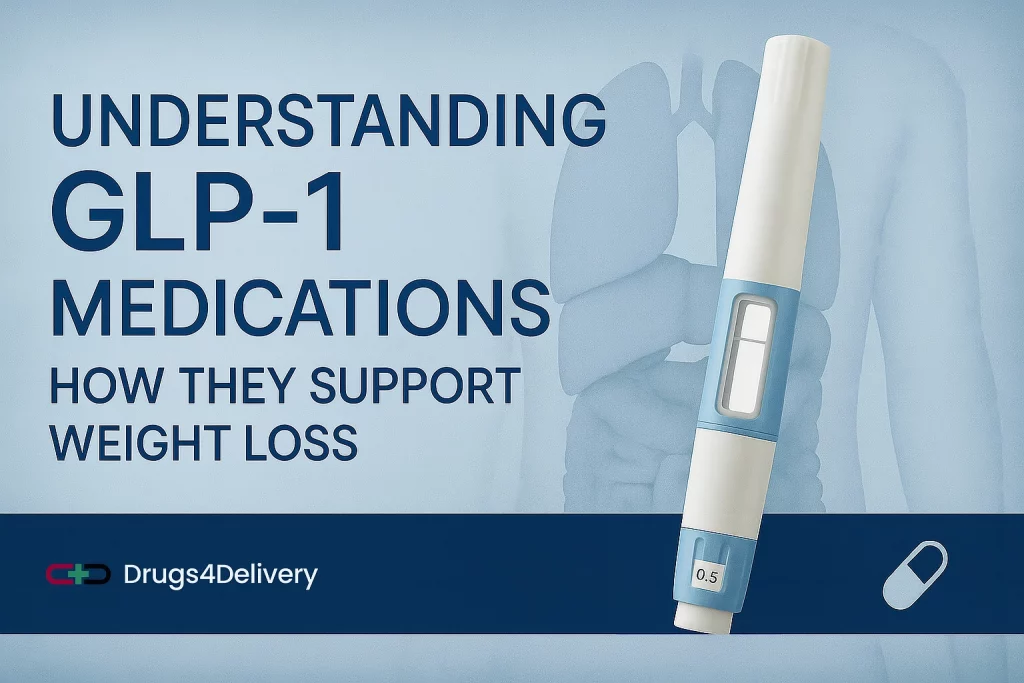Retatrutide is one of the newest medications generating buzz for its potential to support significant weight loss. It’s a weekly injection currently undergoing clinical trials, and early results have shown impressive outcomes for people struggling with obesity or related health issues.
If you’re curious about Retatrutide, how it works, and whether it might be right for you in the future, here’s a simple guide to what you need to know.
Table of Contents
What Is Retatrutide?
Retatrutide is an investigational injectable medication designed to help with chronic weight management. It acts on multiple hormone receptors in the body, including:
- GLP-1 (glucagon-like peptide-1)
- GIP (glucose-dependent insulinotropic polypeptide)
- Glucagon receptors
This triple-action mechanism is what makes Retatrutide different. By influencing these three hormonal pathways, it helps control appetite, regulate blood sugar, and increase energy use — all of which can contribute to significant weight loss.
Clinical trials are still underway, but the early results are promising. One study reported that patients taking Retatrutide lost an average of 24% of their body weight after 48 weeks.
How Does Retatrutide Work?
Retatrutide mimics the effects of natural gut hormones involved in:
- Slowing digestion, so you feel full for longer
- Suppressing hunger signals in the brain
- Improving how your body processes glucose
- Increasing energy use
This makes it easier to reduce calorie intake and stick to long-term lifestyle changes.
Retatrutide is given as a once-weekly injection, similar to other GLP-1 medications.
Who Might Benefit from Retatrutide?
Retatrutide is still in the trial phase, but early evidence suggests it may be suitable for:
- Adults with a BMI of 30 or more (obesity)
- Adults with a BMI of 27+ and at least one weight-related health condition (like high blood pressure or type 2 diabetes)
As with other GLP-1 therapies, it’s designed for those who haven’t achieved success with diet and exercise alone.
If you’re exploring options for weight loss support, you can start with a private assessment here to see what’s currently available.
Is Retatrutide Available Yet?
As of now, Retatrutide is not yet approved for public use. It’s currently in Phase 3 clinical trials, and approval could come in the next 1–2 years depending on results.
However, other GLP-1 medications — such as semaglutide or tirzepatide — are already approved and available through prescription.
Explore current treatment options here and see if you’re eligible.
Are There Any Side Effects?
Because it shares similarities with GLP-1 medications, the most commonly reported side effects in studies so far include:
- Nausea
- Diarrhoea or constipation
- Reduced appetite
- Fatigue
- Headache
These tend to be mild to moderate and often decrease over time as the body adjusts.
How Does It Compare to Other Weight Loss Injections?
Retatrutide is being compared to treatments like semaglutide (Wegovy) and tirzepatide (Mounjaro). Here’s a simple comparison:
| Medication | Action Type | Average Weight Loss (Trials) |
|---|---|---|
| Semaglutide | GLP-1 | ~15% |
| Tirzepatide | GLP-1 + GIP | ~20% |
| Retatrutide | GLP-1 + GIP + Glucagon | ~24% |
These results are based on clinical trial data and may vary for individuals.
Final Thoughts
Retatrutide isn’t available yet, but it’s one of the most exciting developments in obesity care. If approved, it may offer a powerful new option for those looking to lose a significant amount of weight and improve related health concerns.
In the meantime, there are already effective prescription treatments available.
You can check your eligibility and begin your consultation here if you’re ready to take the next step.



